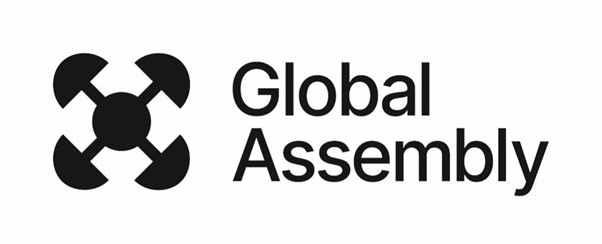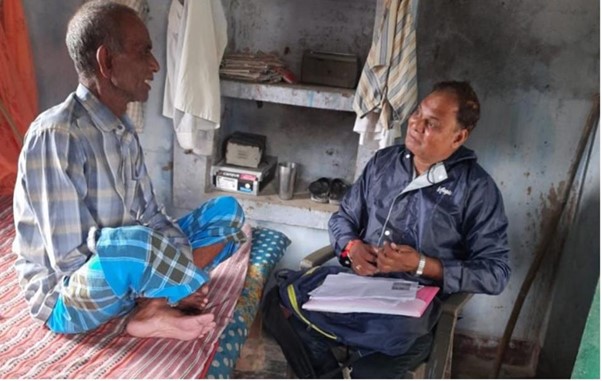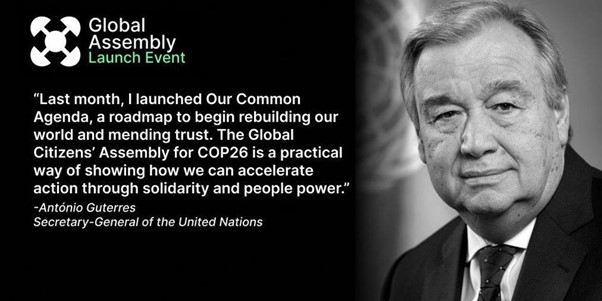
I've been involved in an exciting group that is sending a letter to Prince Charles and the World Economic Forum calling for a Global Citizens Assembly. It's a call to action for COP26 and I was tempted to write all about it ... but was beaten to the game by a fellow campaign supporter Bob Eccles. Here's his article that was published on Forbes earlier in the week.
Global Citizens’ Assemblies: A Bold Idea That Needs Our Support! by Robert G. Eccles
Tenured Harvard Business School professor, now at Oxford University.
COP 26 officially kicks off on October 31. The general tone leading up to this is one of hope, mixed with a large dose of understandable skepticism. In a few weeks, we’ll know the outcome in terms of commitments made and not made. For the former, the question will be one of whether they will be met. For the latter, pressure will continue to get them made.
Governments, corporations, and investors all have an essential role to play to achieve a net-zero and more just economy. NGOs also have a role to play in pushing all of them. All of these groups will be represented in Glasgow.
I’m a “glass half full” kind of guy so I’m optimistic about this important event. But I can also do simple math to conclude that the 25,000+ people present is still a very small number compared to the world population. I am also well aware that most of these people will be and, pardon a term from my 60’s youth, from “The Establishment.” Let’s be honest. Even the NGOs are, or certainly the largest and most important ones. Don’t get me wrong. We absolutely need The Establishment (of which I am now an official member) if we are going to achieve our collective goals in the time we have left to make the changes we need.
But we also need new energy and fresh voices that are more representative of the world’s population. For instance, imagine a global governance body that automatically included 50% women, and with proportionate numbers of people from the Global North and South. We can get this from the Global Assembly (GA). The GA is a global citizens’ assembly, it officially launched with this online event on October 5, 2021. With so many other things going on, I suspect it may not get the attention at COP 26 that it deserves. What I’d like to do here is plant the seed, encourage all of you to get involved, and say “Watch this space for more to come.”
GLOBAL ASSEMBLY
A Citizens’ Assembly “is a body of citizens who come together to deliberate on a given issue and provide a set of recommendations, options, or a collective decision to the convening body.” It is not a new idea, with its origins going back to the Athenian democracy, although its modern form appeared early in the 21st century. Most citizens’ assemblies are top-down, initiated by governments to listen to the people of their nation. What is distinctive, exciting, and essential about the GA, and I would argue central to all global assemblies going forward, is its independence. Neither funders, corporations, governments nor NGOs have influence over the Global Assembly or how it operates. Imagine if we could say the same for our other governance systems! The GA has been co-designed with institutions, scientists, citizens, and social movements from around the world and built entirely from the ground-up.
The mission of the GA “is to give everyone on earth a seat at the global governance table.” And their vision is to create a permanent global citizens’ assembly that by 2030 has over 10 million people participating in it each year, with the GA recognised as a powerful driver of improving our collective ability to tackle global crises such as climate change, health, and inequality. The prototype Global Assembly has involved identifying 100 people using sortition (selection by random sample from a large pool of candidates) from an identified 100 locations across the world. This is a snapshot of the human family—a statistical sample that is representative of the world’s population according to the variables of geography, age, gender, socio-economic background (using years of education as a proxy) and, get this, opinions on whether there is a climate crisis or not.
These people have formed the “Core Assembly.” They are deliberating on the Question: “How can humanity address the climate and ecological crisis in a fair and effective way?”. For more background on the GA see this short video. The intention is to scale up to a Core Assembly of 1,000 people from year two – and ultimately for it to become a permanent fixture in global decision making. This opportunity for ordinary people from around the earth to be involved in public governance is truly groundbreaking.
On June 24, 100 points on the globe were selected by lottery, using a NASA database of human population density. The 100 points produced by this lottery (the “sortition”) are the locations from where the GA recruited participants for the Core Assembly. You can even check out the points near you. In the future it is hoped to perform this global lottery and extent it to 1,000 points.
How will it work? The Core Assembly members have already begun their learning and deliberation together. Taking place online with core transparent information, local translation and other support, the Core Assembly participants are taking this work extremely seriously. Imagine a breakout room with ordinary people from China, Malaysia, Pakistan and the Philippines sharing their lived experiences of the climate crisis, hearing each other, building mutual respect and joining up the dots across the human family. Powerful stuff.
On November 1st citizens from the Global Assembly will present their initial proposals at COP26—so we will be able to see to what extent leaders’ proposals match what citizens want. The Core Assembly will be the catalyst that enables the formation of “Community Assemblies,” either organized on a bespoke basis or leveraging an existing group such as a school, neighborhood, work location, or place of worship. Anyone can form a “Community Assembly,” by registering here. For those who do so, the GA has prepared a very helpful toolkit. It is through these Community Assemblies that the GA hopes to mobilize the voices tens of thousands over the next year and in time to 10 million people around the world who will provide input to the established institutions working to combat the climate and ecological crisis and ensure a just transition.
The GA’s final report will be launched in March 2022, containing all the data from the Core and Community Assemblies, as well as the citizens’ proposals for what they want the GA to focus on next. The aim is for the citizens’ proposals to influence decision-makers and influencers across key global bodies (e.g., the World Economic Forum (WEF), the United Nations, the World Bank, member states, etc).
Establishment institutions have a lot to gain by working with Citizens’ Assemblies. They are a way of bringing to the fore difficult and contentious issues that are hard to discuss in more official settings. They enable government bodies, companies, investors, and NGOs to build broader stakeholder relationships from which they can learn. And let’s be frank, these Citizens’ Assemblies can provide politicians with air cover. One thing is for sure, when citizens’ assemblies generate public debates, they can transform what’s politically possible – and this is exactly what’s needed to tackle the climate and ecological crisis.
Does this idea sound extremely ambitious? Of course it does. Might it fail? Given that no one has ever done this before, of course it could. But its success or failure isn’t preordained and depends upon what citizens all over the world decide to do. The GA has given all of us the opportunity to have our collective voice heard. That will make the GA, which is us, successful.
We need to do this. Climate breakdown and its ugly sisters the biodiversity and pollution emergencies are such existentially challenging issues that we need to pull out all the stops in addressing them. We must experiment with bold but untried ideas like the GA. It is an open secret that established institutions are simply not getting done what is necessary to even keep to a 2°C world. Such a world would have catastrophic consequences for ourselves, our children, and generations to come. There are many reasons for this from short-termism to economic incentives to political polarization within and across countries. It is important to continue to press on these issues and the GA is a potentially new and exciting mechanism for doing so.
The GA already has some positive momentum. UN Secretary General Antonio Guterres has already expressed his support, saying “Last month, I launched Our Common Agenda, a roadmap to begin rebuilding our world and mending trust. The Global Citizens’ Assembly for COP26 is a practical way of showing how we can accelerate action through solidarity and people power.”
More momentum is being provided by the Leaders for Global Assemblies (LfGA). This group has issued an Open Letter to HRH Prince of Wales and the World Economic Forum (WEF) regarding their much publicized “The Great Reset” announced at the WEF’s 50th annual meeting. The letter notes that while this is well-intentioned, “it lacks a democratic mandate by setting a course for all of humanity, when not all voices have been heard.” Loughlin Hickey, Co-founding trustee and senior adviser to A Blueprint for Better Business and the formal Head of Global Tax for KPMG and signatory to the Open Letter says “A great reset cannot happen unless the dignity of people is at its centre. This means hearing the voice of those with lived experience of their world and how it impacts their dignity. We need a reset to ensure lived experience is given the same respect as learned expertise. A global assembly is a symbol of people accompanying each other on a journey to justice and an expression of the willingness to participate, if given the chance and respect.”
LfGA signatories and supporters are Leaders from diverse sectors—business, academia, media, and more—who are stepping up to add their voice to the call for transformative change. Margarida Mendes de Maia, Portugal Fintech Co-Founder added “It's truly ground-breaking to see the seeds for the redistribution of power planted. A word for everyone, from everywhere.”
Leaders for Global Assemblies highlight that business as usual in the global political economy “is driving the destruction of the Earth’s life support systems.” Strong language, to be sure, but also completely true. The Letter adds “Our political economy is designed to fail us – it contains critical system design errors, by prioritising profit over people and planet”. Graeme Maxton, former Secretary General of the Club of Rome, author, and Letter signatory says “To slow the pace of climate change requires cooperation and long-term thinking. …. None of this is compatible with the current short-term profit-maximizing system.”
LEADERS FOR GLOBAL ASSEMBLIES
What are the Leaders for Global Assemblies asking for from those who sign the Open Letter? Simply that the WEF support the GA. What could be more establishment than the WEF and what could be more less so than the GA? By joining forces, both initiatives can do more than either can alone. Strong support for the LfGA’s Open Letter will hopefully encourage the WEF to improve its own effectiveness. And to remain relevant.
Gillian Burke Broadcaster, biologist and LfGA signatory added “As the world becomes more polarised and more fractured, visionary leaders from across finance, business and other sectors are showing their support for Global Assemblies and kindling the flame for deliberative democracy. This is about everyone, everywhere. Get on board!”
We’re all in this together. You can sign the letter here. I have. I hope you will too.
Robert G. Eccles is a Professor of Saïd Business School, University of Oxford and the author of a number of books on integrated reporting, sustainability and the role of business in society. His focus is on sustainability from both a company and investor perspective. Professor Eccles is also involved in a variety of initiatives to embed environmental, social, and governance (ESG) issues in real world decision making. One of these is the Sustainability Accounting Standards Board (SASB), of which he was the founding chairman. In 2018, Professor Eccles was selected by Barron's as one of the top 20 influencers on ESG investing.
Chris M Skinner
Chris Skinner is best known as an independent commentator on the financial markets through his blog, TheFinanser.com, as author of the bestselling book Digital Bank, and Chair of the European networking forum the Financial Services Club. He has been voted one of the most influential people in banking by The Financial Brand (as well as one of the best blogs), a FinTech Titan (Next Bank), one of the Fintech Leaders you need to follow (City AM, Deluxe and Jax Finance), as well as one of the Top 40 most influential people in financial technology by the Wall Street Journal's Financial News. To learn more click here...



